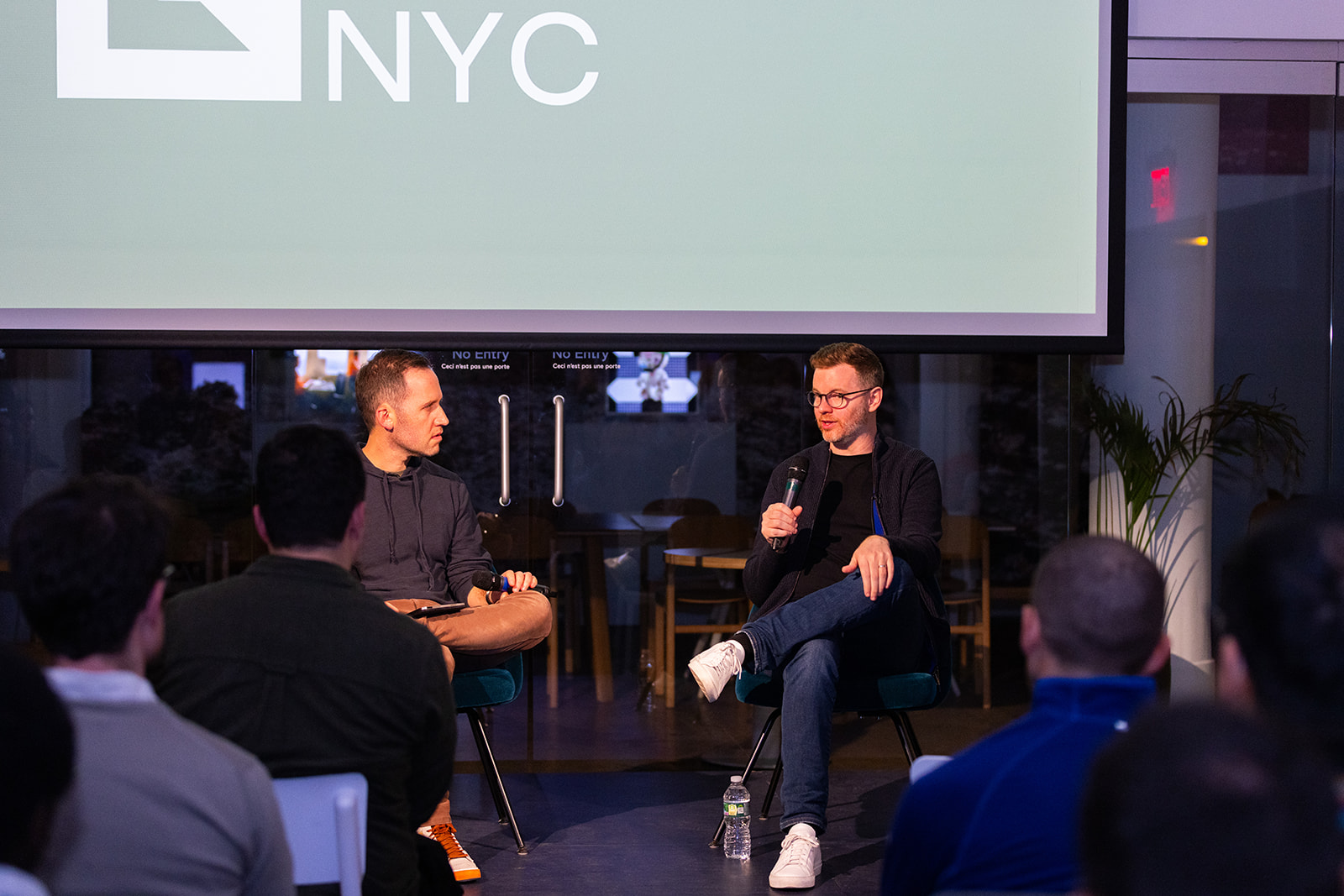
At Lightspeed’s most recent Generative NYC event, Duolingo’s head of AI Klinton Bicknell explained how consumer-facing companies use AI. In a conversation with Lightspeed partner Michael Mignano, Bicknell offered a glimpse into the strengths and limitations of AI, and suggested its future business applications.
Bicknell began his remarks by recalling his academic research into how the brain works, which overlapped with the AI needs of Duolingo. AI, of course, is only as good as the data it works with and Duolingo, Bicknell pointed out, has “possibly the world’s largest dataset about learning;” Duolingo users do about 10 billion exercises a week, and the company captures data from all of them.
Bicknell noted that Duolingo has been deploying AI since the company launched in 2012. The earliest and most widespread use is in personalizing the company’s educational services. For example, if a Duolingo user knows some Spanish but is not fluent, AI maximizes the efficiency of the placement test the user takes. He also explained that AI helps the company detect cheating and maximize engagement.
More recently, Duolingo has introduced AI-powered features that reproduce some of the more complicated tasks that teachers perform. For example, this year Duolingo introduced a GPT-4 driven feature called Explain My Answer, which helps a language learner understand why their answer to a test question was wrong or right. The company’s AI team is also working on “a little radio show that you watch” to help users, Bicknell said.
Mignano and several audience members were eager to know where Bicknell thinks AI is headed. Bicknell pointed to two broad areas where he sees AI’s role expanding in the near future. The first is a rich level of personalization: “a product that knows you extremely, deeply well, knows exactly what you know, knows how you’re learning, and uses that to really optimize learning for you in particular,” he explained.
The second area is increasing the sophistication of interactivity. Earlier this year, Duolingo introduced an AI-driven feature called Roleplay, which simulates the language experience a user might have in a real-world setting, such as in a café conversation. Bicknell explained that Duolingo will continue to evolve this type of product, such as “adapting things to your level and helping out fill in parts that you’re clearly not understanding in a realistic way, that gives you the confidence to go have a real conversation. And you can ask useful follow up questions to some agent.” He pointed out that while some of these interactive experiences are already possible, there is a critical AI product issue around trust; many consumers are not yet ready to trust the responses they receive from AI-powered bots.
The relationship between consumers and AI, however, seems likely to change in coming years. The introduction of ChatGPT in late 2022 has created interactions with tens of millions of people who had never had meaningful encounters with AI. “AI is much more democratized,” Bicknell asserted. “Two years ago, to do any real stuff with AI, you had to get to know a decent amount about AI and technical knowledge about it. Now, anyone who can talk can do some useful AI with a large language model,” he said. This democratization, he explained, is bound to affect the way the technology develops.
Beyond the world of education, Bicknell also predicted that AI in coming years will have a major impact on science. For example, he mentioned that Google’s DeepMind researchers have recently discovered 2.2 million previously unknown crystal structures, which is more than 45 times the amount discovered in the history of science. This finding could have a profound impact on fields from renewable energy to advanced computation.
For all of AI’s powerful acceleration, however, there remain puzzles that have not been solved. In response to an audience question, Bicknell explained that full speech recognition is still a challenge for AI. Teaching non-native speakers a new language inevitably involves accents that are difficult for today’s technology to parse, but Bicknell held out hope that this is improving.
One attendee asked whether the future of translation would involve a layer of technology between speakers that wouldn’t involve learning another language at all; people would speak in their native tongue and be translated appropriately in real time. Bicknell observed that some technologies already make this possible, but that ultimately the question is about why people want to learn another language. “People learn languages for cultural, human connections,” he said. “You might want to read an author in the original language, right? Not read a translation? I think for that reason, people are learning languages for passion, it’s not going to go away.”
Interested in attending a Generative event? Sign up here to receive notifications about future meetups, and be sure to listen to the Generative Now podcast, where AI builders talk about how they’re creating the future.



